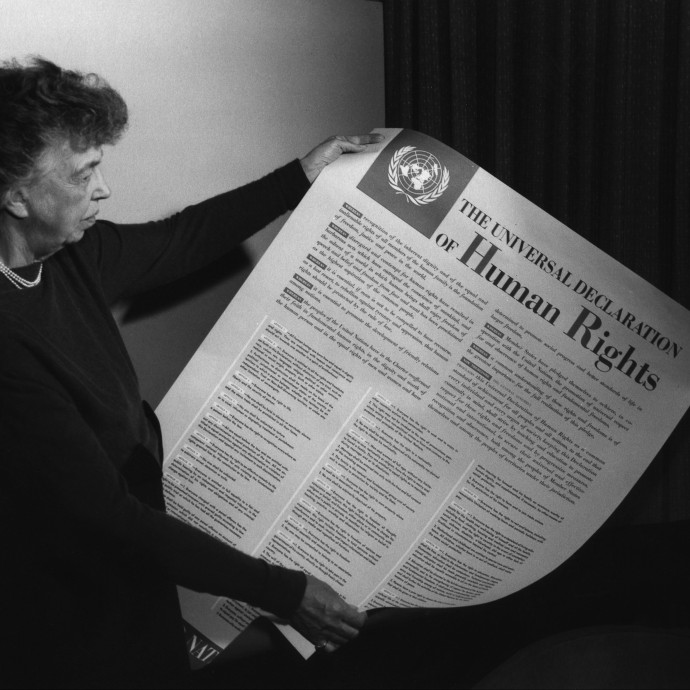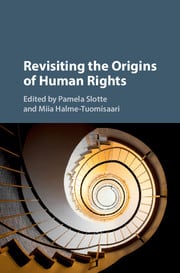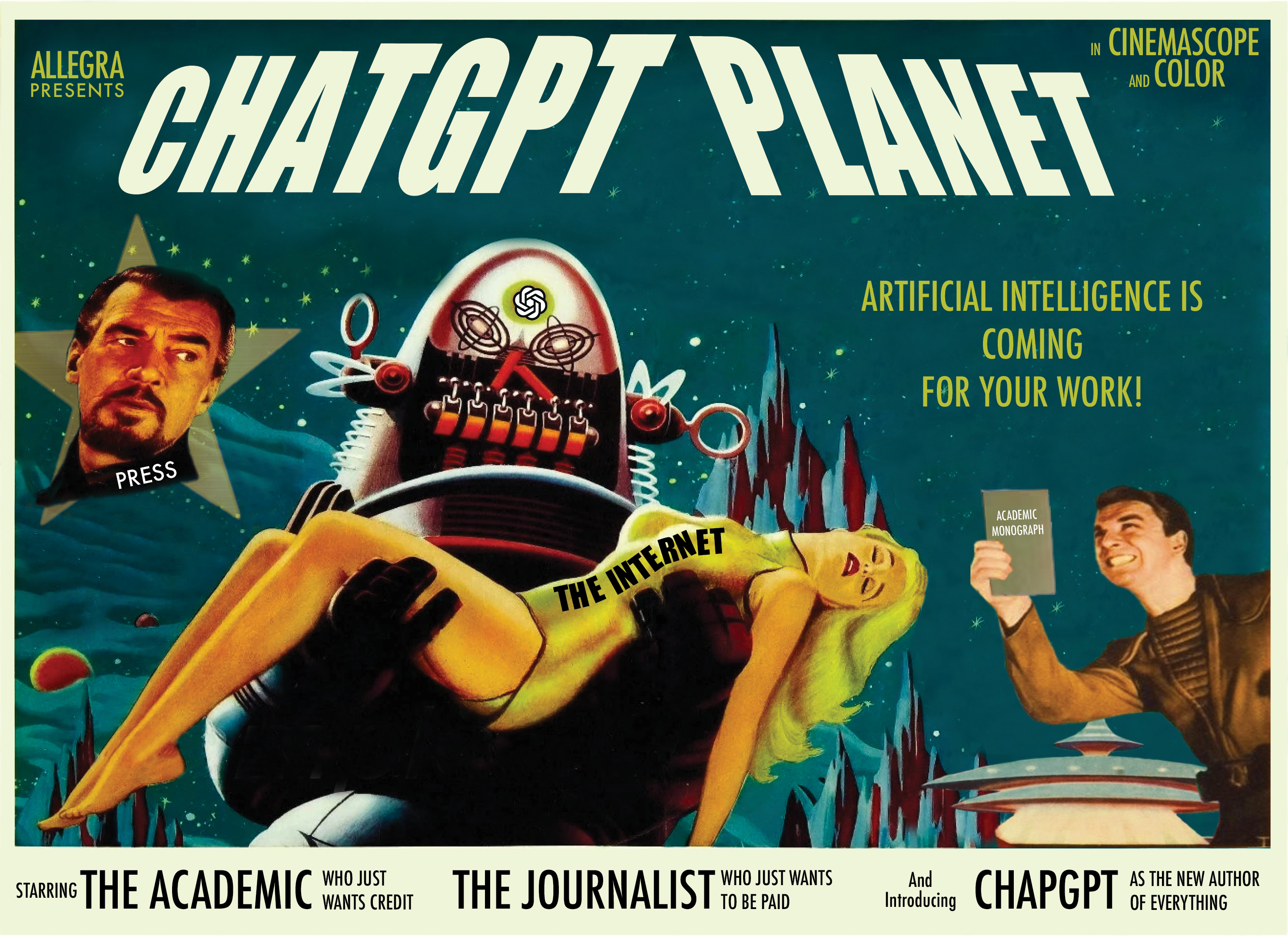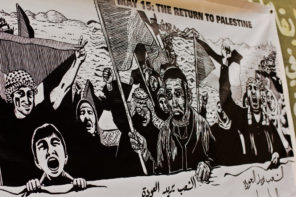This Allegra week will be devoted to a theme that we have not previously addressed, namely the history of human rights. Furthermore, this thematic week will be arranged in something of an unusual fashion in that we will focus on one book alone: Revisiting the Origins of Human Rights.
To bestow any individual publication such massive attention is admittedly extraordinary. And there is a slight bias as to why we will do so: Allegra’s other founder Miia Halme-Tuomisaari is also this book’s other editor together with Pamela Slotte.
Call this academic nepotism or what-not, but there you have it. Yet we hope that our devoted allies will admit that we have not really utilized our beloved Allegra-platform extensively to highlight our own work.
In fact, sometimes it feels that in the spirit of our collective academic credibility we should do more of it! Why only this year almost every one of Allegra’s five editorial board members has published either a monograph or an edited volume.
Perhaps very soon we will thus do an entire week dedicated to ‘Allied Publications’, in the interest of also introducing ourselves better.
However, this week we keep our gaze more restricted. Yet, this is not solely for the ability to embrace the Allegra platform for it is not merely ‘just another edited volume’ that we are talking of. Or so we, the editors, claim.
Rather, Revisiting the Origins of Human Rights embodies a concerted effort for an entirely novel approach for considering the history of human rights.
In doing so, it taps into recent scholarship on this topic – produced with a collective ‘zeal’ that some have also characterized as forming a real ‘frenzy’. Whereas prior to the new millennium the entire field barely existed as a distinct subfield of historical scholarship – this debate was for decades dominated by (activist) international lawyers as we elaborate tomorrow – in recent years human rights have become one of the fastest growing areas of research in political and legal history and intellectual history.
Similar shift of emphasis over the past decade characterises developments that we have also seen in the fields of anthropology, philosophy and theology – a joint engagement, to use Mark Goodale’s terminology of this trajectory within anthropology, that reflects the position of human rights as the ‘idea of our time’, of their position as ‘doxa’.
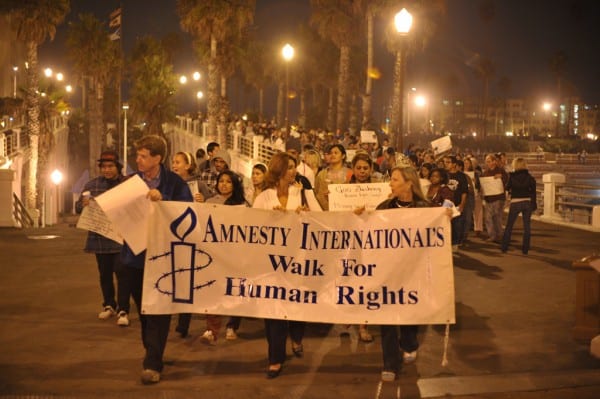
Photo by John Lemieux (flickr, CC BY 2.0)
For historians this recent engagement appears so intense as to be already characterized by distinct ‘miniature phases’. First came the voices who, as if gently testing the waters, pointed out among others how the phrase ‘human rights’ was hardly in circulation particularly in the English speaking world prior to the UDHR, thus calling for care in our collective inclination to read evidence of the history of human rights in past eras.
This was followed by a ‘big bang’ of sorts through the publication of Samuel Moyn’s The Last Utopia in 2010 – a book that forwarded the starkest ‘revisionist’ account to date, challenging all attempts at historical continuities and by contrast suggesting that our collective gaze should be rather directed at the decades following the adoption of the UDHR, particularly the 1970s and onward.
That Moyn’s book arrived at an opportune moment for a scholarly field that was ‘ripe’ for the topic was reflected in extraordinary attention of both support and criticism. Although the most intense heat around the book has by now passed, its centrality is continually reflected in the this debate. The book’s impact has embodied itself also in the volume Revisiting the Origins of Human Rights, either in direct references in many chapters, or as recognition of its publication by our authors as providing key motivation to engage with the topic.
Suddenly a field that for long appeared to enjoy spectacular agreement – or as being non-existent all together – was in flames, with heated arguments flying in from all sides to either declare this new revisionist account as being right, or by contrast, as wrong, as the worst kind of heresy.
Yet, this collective engagement had hardly begun with full vigor when parts of it appeared to fade away already. As if in search for an escape from the ‘prison’ that the history of human rights seemed to form for some of its leading voices, focus appeared to shift more either towards searching for alternative ‘stories’, the history of human duties or human dignity offering two plausible candidates, or to question the entire meaning of this endeavor.
Thus various signs suggest that we may already be heading towards another mini-phase, namely detachment, to return to Goodale’s terminology. Consequently now, instead of human rights, most intense vigor appears to be directed towards other discussions on intellectual history and intellectual dimensions of international history, including the histories of international government, empire and humanitarianism.
The history of international law more specifically – a booming field long before the ‘frenzy’ around human rights – has likewise remained vibrant, undergoing a period of growth while concurrently becoming the source of some of the most exciting scholarship in the discipline. In the history of human rights, by contrast, emphasis has shifted to the post UDHR-era and the exploration of the global phenomenon and its expansion.
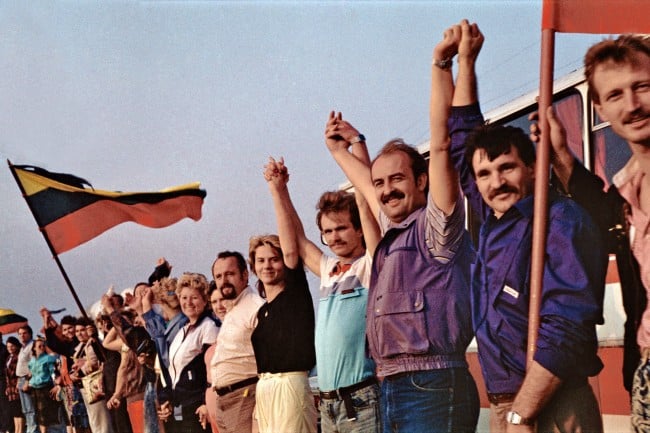
Photo by Kusurija via Wikimedia Commons (CC BY-SA 3.0)
Importantly much of this recent ‘zeal’ has not necessarily become extensively known beyond a rather narrow group of ‘insiders’ in these debates. Thus via this week we wish to introduce these debates to a wider audience within anthropology and beyond.
We set things off tomorrow by summarizing some main arguments that accompanied the shared endeavor that eventually became the book Revisiting the Origins of Human Rights. In particular, we introduce the main features of ‘the textbook narrative of origins’ as we have come to call the ‘story’ via which the history of human rights has customarily been told by activist international lawyers.
On Wednesday we expand our debate to address key themes, commonalities and contradictions raised by the book’s individual chapters via glimpses of the book’s afterword written by Conor Gearty. On Thursday we bring this debate to life via a video of the book’s launch, featuring in addition to ourselves, the editors, also Martti Koskenniemi and Luis Eslava as commentators. The video concludes with a panel chaired by Reetta Toivanen, and participated in also by one of the book’s authors, namely Jacob Giltaij. This video will be accompanied by a short summary of the event by Ukri Soirila.
We will conclude this week on Friday on a slightly different note: we share thoughts that have accompanied the book’s writing process, and discuss how they mirror themselves against the pressures of productivity and quantified ‘impact’ of our era.
These thoughts convey an additional reason that motivated us to devote an entire week to just one publication: they remind all of us to remember to take time for reading, reflecting and thinking. The very things that academic work should be all about – but for which we ironically have continually less time.
We are grateful for Cambridge University Press for collaboration and permission to reproduce excerpts from the book!
Indicative bibliography of relevant publications in the history of human rights & international law/governance (post 2010)
Armitage, David: Foundations of Modern International Thought. Cambridge/New York: Cambridge University Press, 2013.
Bardo Fassbender, Anne Peters, Simone Peter and Daniel Högger, The Oxford Handbook of the History of International Law. Oxford: Oxford University Press, 2012.
Barreto, Jose-Manuel: Human Rights from a Third World Perspctive. Cambridge: Cambridge Scholars Publishing, 2013.
Bring, Ove: De mänskliga rättigheternas väg – genom historien och litteraturen. Atlantis, 2012.
Brysk, Alison, and Austin Choi-Fitzpatrick, eds. From Human Trafficking to Human Rights: Reframing Contemporary Slavery. Philadelphia, University of Pennsylvania Press, 2011.
Burke, Roland: Decolonizing and the Evolution of International Human Rights. Philadelphia: University of Pennsylvania Press, 2010.
Davey, Eleanor: Idealism Beyond Borders: The French Revolutionary Left and the Rise of Humanitarianism, 1954-1988. Cambridge/New York: Cambridge University Press, (Forthcoming December 2015).
Dhawan, Nikita (ed.): Decolonizing Enlightenment: Transnational Justice, Human Rights and Democracy in a Postcolonial World. Barbara Budrich Publishers, 2014.
Eckel, Jan, and Moyn, Samuel: The Breakthrough: Human Rights in The 1970s. Philadelphia: University of Pennsylvania Press, 2014.
García-Salmones Rovira, Mónica:Project of Positivism in International Law. Oxford: Oxford University Press, 2013.
Hoffmann, Stefan-Ludwig (ed): Human Rights in the Twentieth Century. Cambridge/New York: Cambridge University Press, 2010.
Iriye, Akira; Godde, Petra, and Hitchcock, William I. (eds.): The Human Rights Revolution: An International History. New York: Oxford University Press, 2012.
Klosen, Fabian (ed): The Emergence of Humanitarian Intervention: Ideas and Practice from the Nineteenth Century to the Present. Cambridge/New York: Cambridge University Press (forthcoming).
Jensen, Steven L. B: The Making of International Human Rights: the 1960s, Decolonization, and the Reconstruction of Global Values. Cambridge/New York: Cambridge University Press (forthcoming).
Mazower, Mark: Governing the World: The History of an Idea. London: Allen Lane, 2012.
Moyn, Samuel: The Last Utopia: Human Rights in History, Reprint. Cambridge: Harvard University Press, 2012.
– – -2014 Human Rights and the Uses of History. [S.l.]: Verso.
Samuel Moyn and Andrew Sartori, Global Intellectual History. New York: Columbia University Press, 2013.
McMahon, Darrin M. & Moyn, Samuel (eds.): Rethinking Modern European Intellectual History. New York: Oxford University Press, 2014.
Orford, Anne: International Authority and the Responsibility to Protect. Cambridge: Cambridge University Press, 2011.
Reus-Smit, Christian: Individual Rights and the Making of the International System. Cambridge: Cambridge University Press, 2013.
Rodogno, Davide: Against Massacre: Humanitarian Interventions in the Ottoman Empire, 1815-1914. Princeton, NJ: Princeton University Press, 2011.
Roberts, Christopher N. J: The Contentious History of the International Bill of Human Rights. Cambridge: Cambridge University Press, 2014.
Snyder, Sarah B: Human Rights Activism and the End of the Cold War: A Transnational History of the Helsinki Network. Cambridge/New York: Cambridge University Press, 2013.
Whelan, Joseph: Indivisible Human Rights: A History. Philadelphia, University of Pennsylvania Press, 2010.
Winter, Jay & Prost, Antoine: René Cassin and Human Rights: From the Great War to the Universal Declaration. Cambridge/New York: Cambridge University Press, 2013.
Indicative bibliography of relevant publications by the authors of Revisiting the Origins of Human Rights
Barsalou, Olivier. 2012. La diplomatie de l’universel : la guerre froide, les Etats-Unis et la genèse de la déclaration universelle des droits de l’homme, 1945-1948. Bruxelles: Emile Bruylant.
Benton, Lauren. 2009. Law and Colonial Cultures: Legal Regimes in World History, 1400-1900. Cambridge; New York: Cambridge University Press.
———. 2010. A Search for Sovereignty: Law and Geography in European Empires, 1400-1900. 1 edition. Cambridge ; New York: Cambridge University Press.
– – -.2013. Legal Pluralism and Empires, 1500-1850. (Lauren Benton and Richard Ross, eds.). New York: New York University Press.
Brett, Annabel. 2010. Liberty, Right and Nature: Individual Rights in Later Scholastic Thought. New Ed edition. Cambridge University Press.
———. 2014. Changes of State: Nature and the Limits of the City in Early Modern Natural Law. New in Paper edition. Princeton: Princeton University Press.
Brett, Annabel and Tully, James (eds.) 2006. Rethinking the Foundations of Modern Political Thought. Cambridge; New York: Cambridge University Press.
Ceadel, Martin. 1980. Pacifism in Britain, 1914-45: Defining of a Faith. First edition. Hardback. Dust jacket. edition. Oxford: Clarendon Press.
———. 1988. Thinking About Peace and War. New edition. Oxford: Oxford Paperbacks.
– – – 1996. The Origins of War Prevention: The British Peace Movement and International Relations, 1730-1854. Oxford : Oxford University Press.
———. 2000. Semi-Detached Idealists: The British Peace Movement and International Relations, 1854-1945. Oxford: Oxford University Press.
———. 2009. Living the Great Illusion: Sir Norman Angell, 1872-1967. Oxford: Oxford University Press.
Claeys, Gregory. 2010. Imperial Sceptics: British Critics of Empire, 1850-1920. Cambridge ; New York: Cambridge University Press.
———. 2011. Searching for Utopia: The History of an Idea. New York: Thames & Hudson.
Gearty, Conor. 2011. Can Human Rights Survive?: The Hamlyn Lectures 2005. 1 edition. Cambridge: Cambridge University Press.
– – -2013. Liberty and security. London: Polity.
Gearty, Conor and Douzinas, Costas (eds.) 2012. The Cambridge companion to human rights law Cambridge companions to law. Cambridge: Cambridge University Press
Douzinas, Costas and Gearty, Conor (eds.) 2014. The meanings of rights : the philosophy and social theory of human rights. Cambridge: Cambridge University Press.
Gearty, Conor, and Virginia Mantouvalou. 2010. Debating Social Rights. Oxford England ; Portland, Or: Hart Publishing.
Halme-Tuomisaari, Miia. 2010. Human Rights in Action. Leiden; Boston: Martinus Nijhoff.
Hunt, Lynn. 2008a. Measuring Time, Making History. Budapest; New York: Central European University Press.
———. 2008b. Inventing Human Rights: A History. New York: W. W. Norton & Company.
– – -.2014. Writing History in the Global Era. New York: W. W. Norton & Company
Hunt, Lynn, Margaret C. Jacob, and Wijnand Mijnhardt. 2010. Book That Changed Europe. Cambridge, Mass: Harvard University Press.
Koskenniemi, Martti. 2002. The Gentle Civilizer of Nations: The Rise and Fall of International Law, 1870-1960. Cambridge; New York: Cambridge University Press.
– – -2005. From apology to Utopia: the structure of international legal argument. Cambridge: Cambridge University Press.
———. 2011. The Politics of International Law. Oxford: Hart Publishing.
Crawford, James and Koskenniemi, Martti (eds.). 2012. The Cambridge Companion to International Law. Cambridge: Cambridge University Press.
Mäkinen, Virpi. 2001. Property Rights in Late Medieval Discussion on Franciscan Poverty. Leuven: Peeters Publishers.
Mäkinen, Virpi (ed.) 2013. Lutheran Reformation and the Law. Leiden; Boston: Brill Academic Publishers.
Mäkinen, Virpi and Korkman, Petter (eds.). 2006. Transformations in Late Medieval and Early Modern Rights Discourse
Moyn, Samuel. 2012. The Last Utopia: Human Rights in History. Cambridge, Mass.: Belknap Press of Harvard University Press.
– – – 2014. Human Rights and the Uses of History. New York; London: Verso.
– – – 2015. Christian Human Rights. Philadelphia: University of Pennsylvania Press.
Moyn, Samuel and Jan Eckel (eds.) 2013. The Breakthrough: Human Rights in the 1970s. Philadelphia: University of Pennsylvania Press.
Reeves-Ellington, Barbara, Kathryn Kish Sklar, and Connie Anne Shemo (eds.) 2010. Competing Kingdoms: Women, Mission, Nation, and the American Protestant Empire, 1812-1960. Durham: Duke University Press.
Slotte, Pamela. 2005. Mänskliga rättigheter, moral och religion: Om de mänskliga rättigheterna som moraliskt och juridiskt begrepp i en pluralistisk värld. [Human Rights, Morality and Religion. On Human Rights as a Moral and Legal Concept in a Pluralistic World]. Published dissertation monograph. Åbo: Åbo Akademis förlag.
– – -.2012. Utopi och apologetik: Om mänskliga rättigheter och historieskrivning. Teologinen Aikakauskirja, 117(3), 50-59.
Tuori, Kaius. 2007. Ancient Roman Lawyers and Modern Legal Ideals: Studies on the Impact of Contemporary Concerns in the Interpretation of Ancient Roman Legal History. Frankfurt am Main.
– – -.2014. Lawyers and Savages: Ancient History and Legal Realism in the Making of Legal Anthropology. London: Routledge
Zovinar, Kévonian. 2004. Réfugiés et diplomatie humanitaire : Les acteurs européens et la scène proche-orientale pendant l’entre-deux-guerres. Paris: Publications de la Sorbonne.
Slotte, Pamela & Halme-Tuomisaari, Miia: Revisiting the Origins of Human Rights. Cambridge: Cambridge University Press, 2015.

